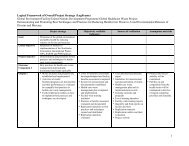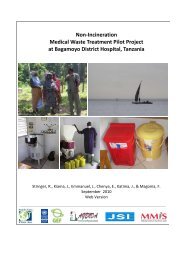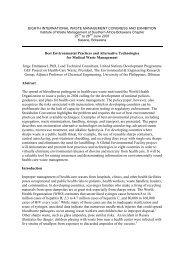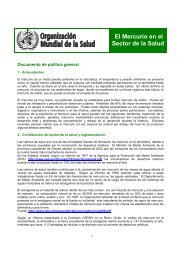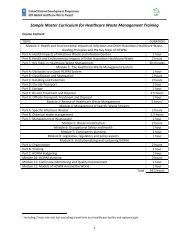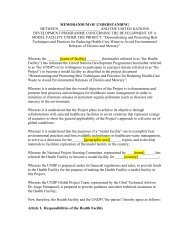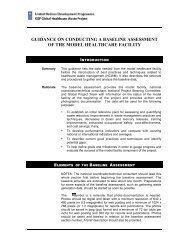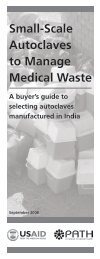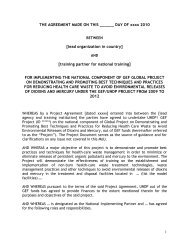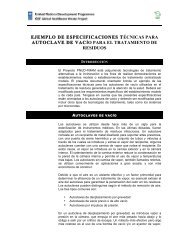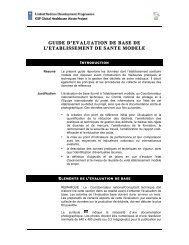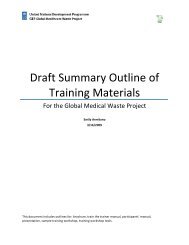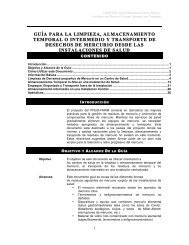Latvia
Latvia
Latvia
You also want an ePaper? Increase the reach of your titles
YUMPU automatically turns print PDFs into web optimized ePapers that Google loves.
Health systems in transition<br />
<strong>Latvia</strong><br />
substantially higher than the 91.3% average for the EU (WHO Regional Office<br />
for Europe 2007a).<br />
Minorities<br />
Statistical data on health status by ethnic origin are not collected in <strong>Latvia</strong>;<br />
therefore, it is not possible to arrive at any conclusion identifying or<br />
characterizing any differences in health among minorities. The minorities in<br />
<strong>Latvia</strong> have been residing there for long periods of time and are not localized<br />
in one administrative territory, but are scattered throughout the country.<br />
Health inequalities and access to health care services<br />
A major restriction to access to medical care is low income. The proportion of<br />
poor people is still very high in <strong>Latvia</strong> (as noted in Section 1.3 Economic context)<br />
and there is evidence that population health depends in part on ability to pay<br />
for health care services. Increasing prices and low incomes limit possibilities<br />
for receiving health care services or purchasing medicines (Krastins 2005).<br />
According to a survey of 1000 citizens in various regions of <strong>Latvia</strong>, one third<br />
of the respondents were unable to obtain necessary health care services as a<br />
result of low incomes (Boronenko 2003). Moreover, the regions with the more<br />
serious access problems were also those in which the population suffers from<br />
the poorest health, suggesting that there is a close link between health status<br />
and access to health care services.<br />
Other studies suggest that even larger proportions of the <strong>Latvia</strong>n population<br />
may have difficulties with access due to not being able to afford certain services.<br />
According to the United Nations Development Programme (UNDP) <strong>Latvia</strong>n<br />
Population Development Report, 83.0% of respondents are worried about<br />
their ability to cover health care expenses (Kesnere 2005b). A total of 48.2%<br />
of respondents who had participated in the survey “<strong>Latvia</strong>n population income<br />
level and health care access” (Karaskevica 2003) answered they had refused<br />
health care services due to lack of money for patient payment, and 32.9% had<br />
worried about final treatment expenses. By comparison, only 18.9% respondents<br />
refused health care services due to doubt about medical staff’s competence and<br />
experience. Further, 51.6% of respondents do not buy prescribed medications<br />
regularly, and 75% of these refer to lack of money as the reason for this. As Fig.<br />
1.3 indicates, the lower the income, the higher the proportion of respondents<br />
who worry about lack of money as a constraint to receiving necessary health<br />
care services.<br />
22



